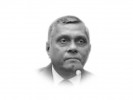Does The Legacy Of The Cold War Still Haunt Europe?
“This is a historic day. Sweden will now take its rightful place at NATO’s table, with an equal say in shaping NATO policies and decisions. After over 200 years of non-alignment, Sweden now enjoys the protection granted under Article 5, the ultimate guarantee of allies’ freedom and security,” said NATO Secretary General Jens Stoltenberg in a statement on Sweden’s entry into NATO.
Recently, Swedish Prime Minister Ulf Kristersson visited Washington on the occasion of his country becoming the 32nd member of the Atlantic Alliance and held a press conference with the US Secretary of State Antony Blinken in which he justified his country joining NATO following Russia’s attack over Ukraine in February 2022. Both Finland and Sweden have maintained neutrality since the outbreak of the Cold War in 1945, till the time they had second thoughts and applied for membership in the US led Atlantic Alliance in 2022. Sweden remained neutral since the end of the Napoleonic war in 1815, and was not involved in either the first or the second World War. Along with Finland, it decided not to be part of a Cold War and proclaimed neutrality till the time the two Nordic countries applied to join NATO in 2022.
Does it mean that the legacy of the Cold War still haunts Europe? Does the inclusion of Sweden and Finland in NATO mean that the demise of the Soviet Union failed to mitigate the security threats that prompted the formation of NATO on April 4, 1949?
Many rightfully claim that the replacement of the Soviet threat with the Russian peril was one way that the West was able to sustain the threat perception in order to justify the continued militarization of Europe.
The justification for NATO in the post-Cold War era grew muted with the collapse of the Warsaw Pact, which was formed as a reaction to the Atlantic Alliance in 1955 under Soviet leadership.
Out of 32 members of NATO, two are from North America - Canada and the United States, and the remaining 30 are from Europe, which means that the Atlantic Alliance has expanded enormously since it was formed in April 1949. Ironically, the Cold War ended with the collapse of the Berlin Wall in November 1989 and the collapse of the Soviet bloc in 1991, but NATO, which was a reflection of the antagonism between the Soviet and Western blocs, continued to strengthen with each passing year.
Cold Wave To Trouble Lahore For A While LongerThe justification for NATO in the post-Cold........
© The Friday Times





















 Toi Staff
Toi Staff Gideon Levy
Gideon Levy Andrew Mitrovica
Andrew Mitrovica Belen Fernandez
Belen Fernandez Tarik Cyril Amar
Tarik Cyril Amar Rachel Marsden
Rachel Marsden Warren J. Blumenfeld
Warren J. Blumenfeld Dr Ramzy Baroud
Dr Ramzy Baroud Adam Makary
Adam Makary
